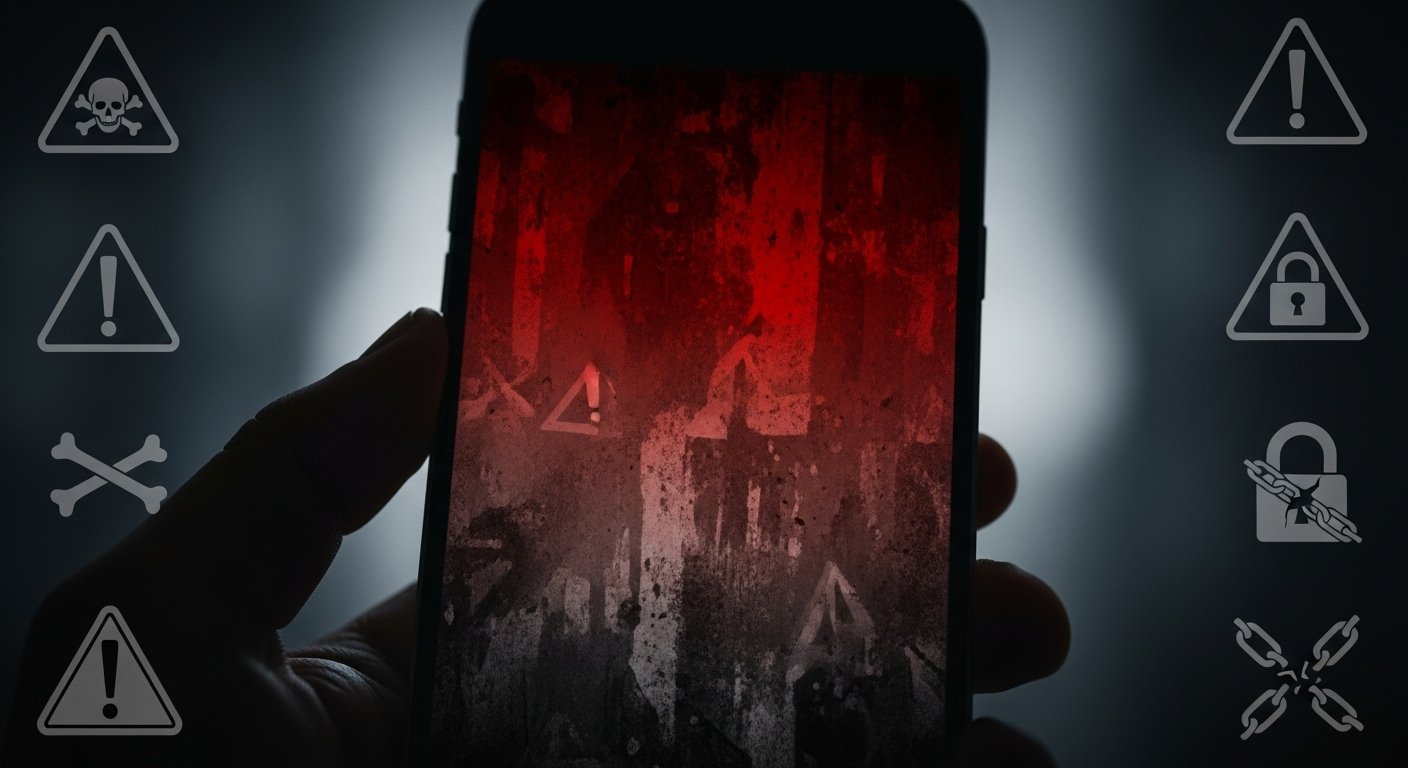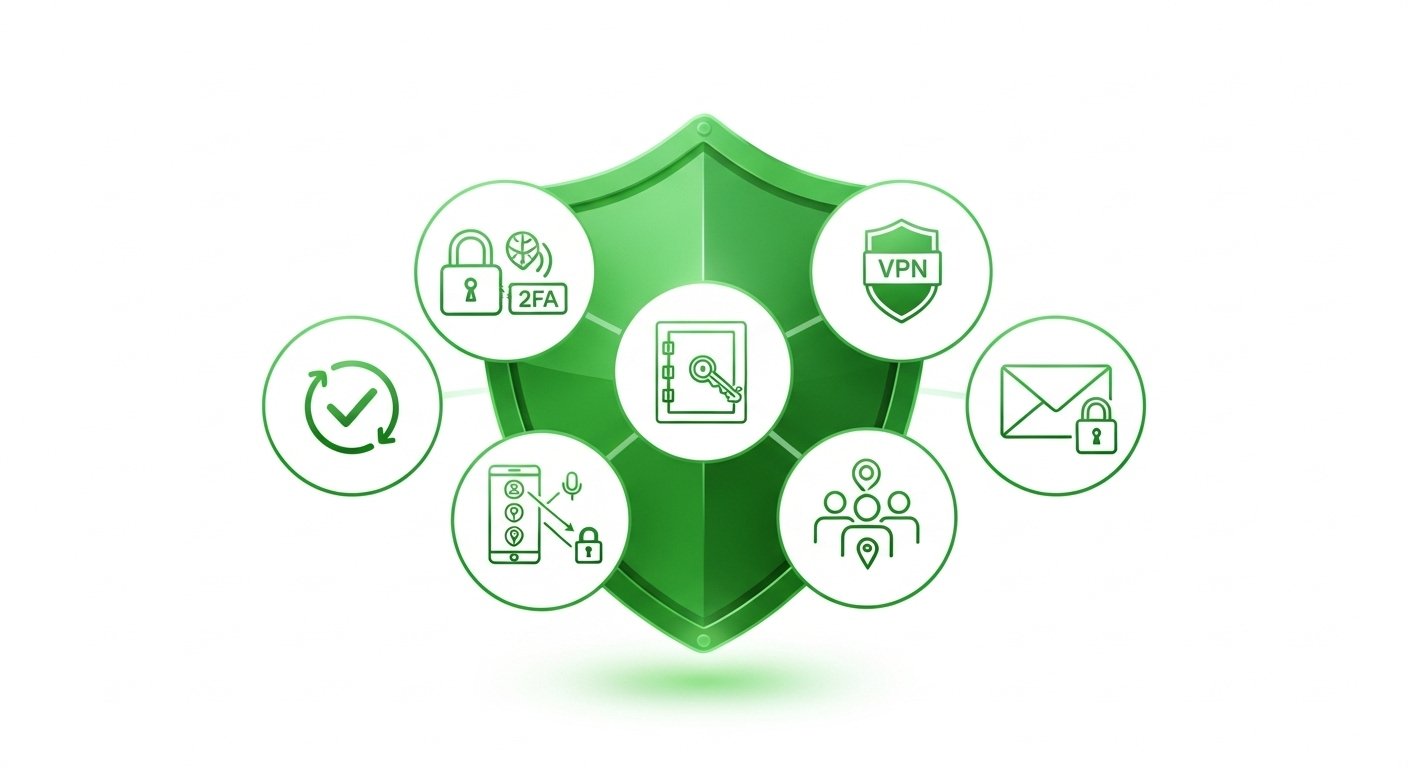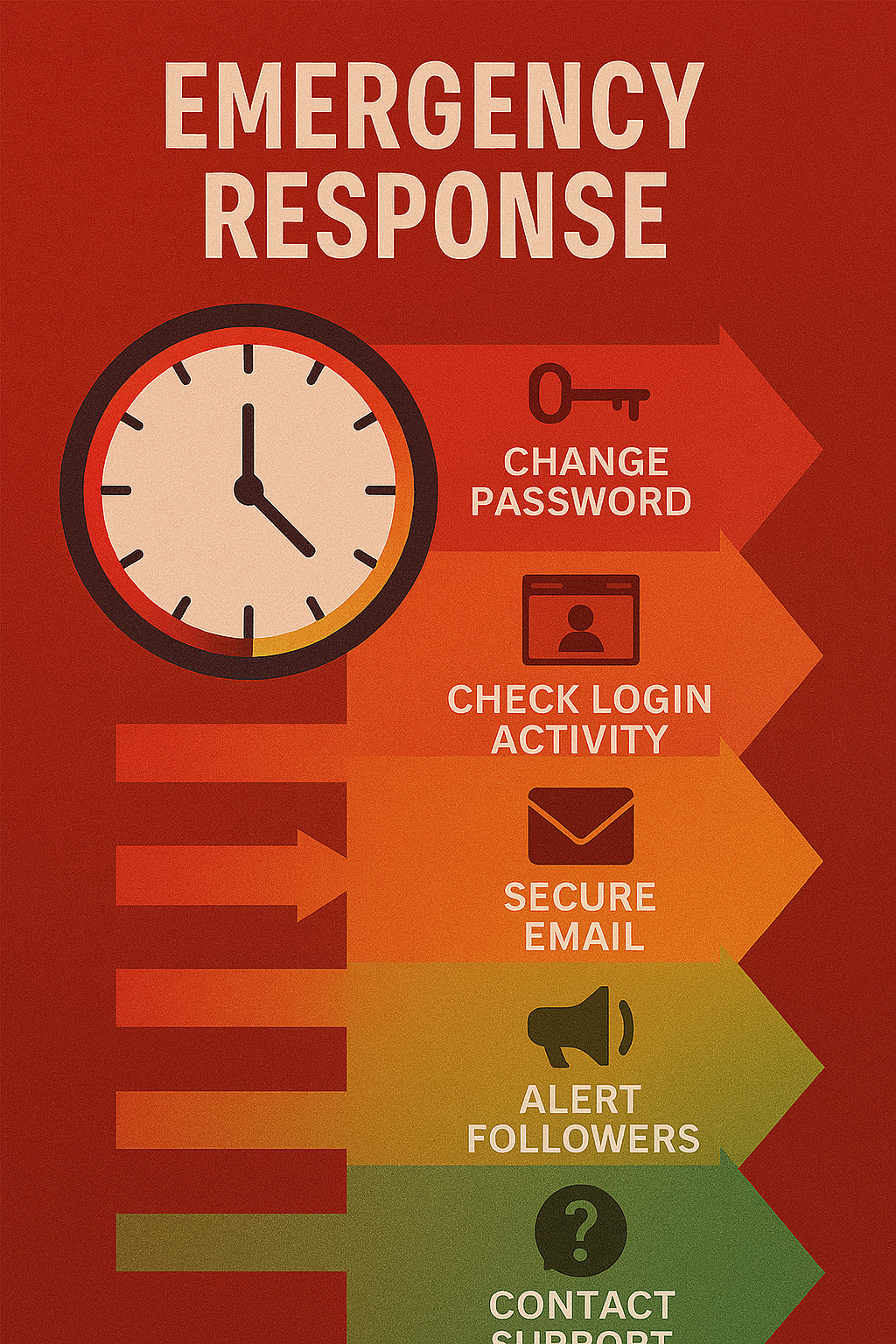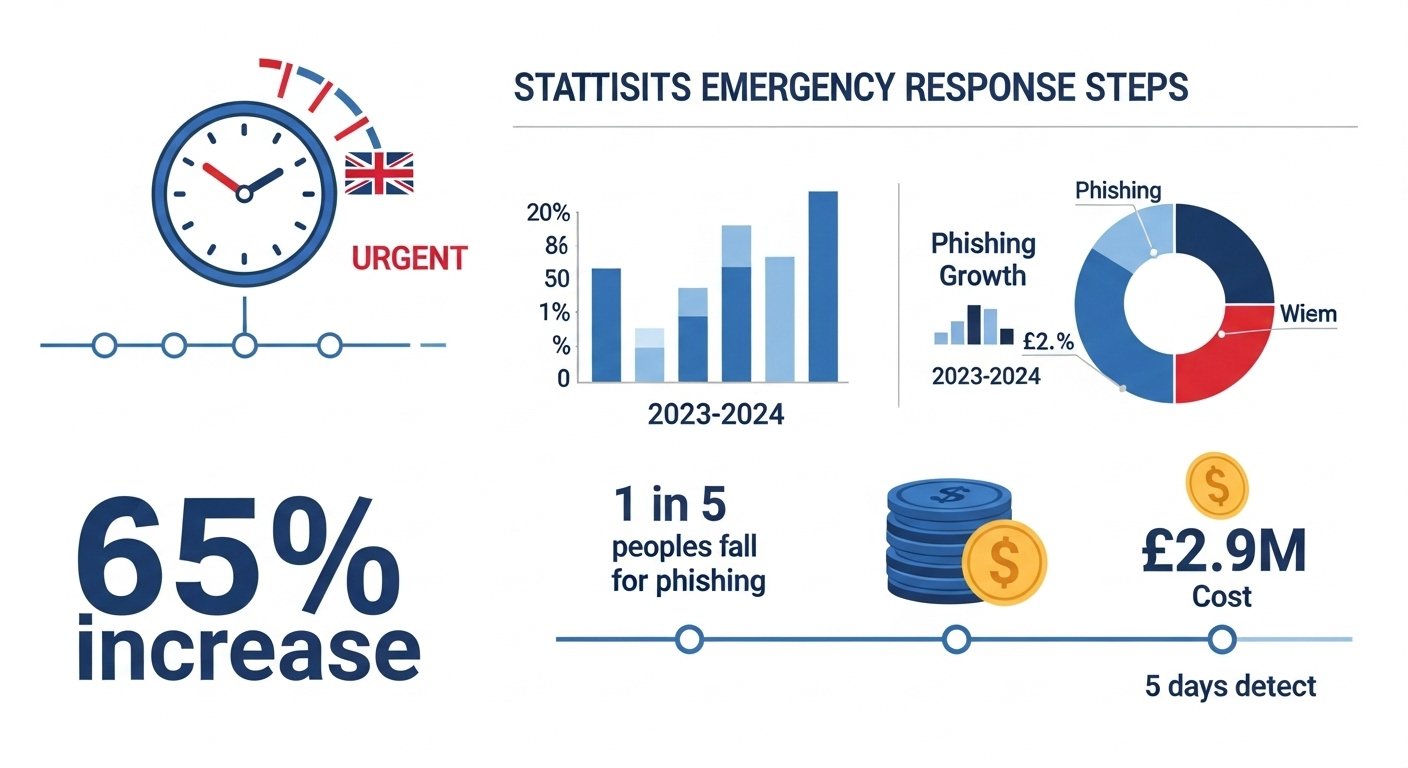The Reality: Phishing Attacks Are Targeting Your Business
If you own a business in Liverpool, your Facebook account is a target. Every single day, scammers are sending phishing messages to business owners like you—and many don’t realize they’ve been compromised until it’s too late.
We’ve seen it happen countless times: A business owner receives a seemingly innocent message from what looks like Facebook support, a client, or a trusted partner. They click a link. Enter their password. And suddenly, their account—and their business reputation—is hijacked.
The scary part? Most phishing scams are so well-crafted that even experienced business owners fall for them.
According to recent reports, phishing scams targeting UK small businesses have increased by 65% in 2024. Liverpool businesses are not immune.
How Phishing Scams Work on Facebook
For more information on phishing basics, check out the UK National Cyber Security Centre’s phishing guide.
The Classic Phishing Tactics
Scammers aren’t stupid. They’re sophisticated. Here’s how they typically operate:

1. The “Urgent Action Required” Message
You get a message claiming to be from Facebook security: “Your account has suspicious activity. Verify your identity immediately or your account will be suspended.”
Your heart sinks. You panic. And you click the link.
2. The “Verify Your Business Page” Scam
A message arrives saying your business page has been flagged and you need to “verify your information” to keep it active. Looks official. Feels urgent. The link takes you to a fake Facebook login page that steals your credentials.
3. The “Trusted Partner” Approach
A scammer impersonates someone you know—a client, supplier, or colleague. They create a fake account or compromise a real one. They ask you to “confirm payment details” or “verify banking information” via a link. You trust them. You click.
4. The Payment Processing Phish
A message from what looks like Stripe, PayPal, or another payment processor says there’s an issue with your account. You need to “re-verify your payment method” immediately. The link looks real. But it’s not.
Scammers prey on urgency and fear. When you’re scared about losing your account or money, you make poor decisions. They know this.
Warning Signs: How to Spot a Phishing Message

Before You Click Anything, Check For These Red Flags:
What Happens If You Fall For It?

Let’s be clear: if you click a phishing link and enter your Facebook credentials, here’s what scammers can do:
- Hijack Your Business Page: Post fraudulent content, damage your reputation, or scam your followers
- Steal Customer Data: Access private messages, customer information, and confidential conversations
- Run Fake Advertising: Charge ads to your account without your permission
- Access Connected Accounts: If you’ve linked Instagram or other services, they get those too
- Extract Sensitive Information: Payment details, banking info, or personal data you’ve shared
- Impersonate You: Message your clients pretending to be you, potentially causing massive damage
The financial and reputational damage can be devastating for a small business.
7 Practical Steps to Protect Your Business Right Now
1. Enable Two-Factor Authentication (2FA)
Even if a scammer gets your password, they can’t access your account without the second verification code. This is non-negotiable for business owners.
How: Facebook Settings → Security and Login → Two-Factor Authentication → Choose your method (app or text message)
2. Use a Strong, Unique Password
Your password should be 16+ characters with a mix of numbers, symbols, and letters. Use a password manager like Bitwarden or 1Password to manage them.
Never use: Your business name, birth date, or simple variations like “Facebook2024!”
3. Never Click Links in Messages
If you get a message from “Facebook support,” go directly to facebook.com in a new browser tab. Log in. Check your account directly. Don’t click the message link.
4. Verify Sender Identity Before Responding
If someone claiming to be a client or partner messages you asking for sensitive info, contact them directly through a known phone number or email. Don’t reply via Facebook.
5. Keep Your Email Secure
Your email is the key to your Facebook account. If scammers access your email, they can reset your Facebook password. Protect it ferociously:
- Use a unique, strong password
- Enable 2FA on your email account
- Review connected apps regularly
6. Review Connected Apps Regularly
Go to Facebook Settings → Apps and Websites. Remove any apps you don’t recognize or use anymore. Compromised apps are a common entry point for scammers.
7. Educate Your Team
If your employees have access to your business Facebook account, train them on phishing awareness. Many breaches happen because staff click malicious links without thinking.
Take a screenshot of any suspicious message and report it to Facebook. Go to the message → click the three dots → “Report”. Real Facebook takes phishing seriously.
What If You’ve Already Been Compromised?

Act Fast. Here’s Your Recovery Checklist:
- Change Your Password Immediately: Use a device that hasn’t been compromised (if possible, a different computer or phone)
- Review Login Activity: Settings → Security and Login → Where You’re Logged In. Sign out of any unrecognized sessions.
- Check for Unauthorized Apps: Settings → Apps and Websites. Remove anything suspicious.
- Secure Your Email: Change your email password and review recovery options
- Alert Your Followers: Post on your business page: “Our account was compromised. If you received suspicious messages, please ignore them.”
- Report to Facebook: Help Center → Report a Problem → Account Compromised
- Monitor Your Account: Watch for fraudulent activity over the next few weeks
The Bottom Line for Liverpool Business Owners
Phishing scams aren’t going away. They’re getting more sophisticated every day. The scammers targeting your business are professionals—this is how they make money.
But here’s the good news: With awareness and the right precautions, you can protect yourself.
The key is simple:
- Stay suspicious of unexpected messages
- Never click links in messages claiming urgency
- Enable 2FA on every account that matters
- When in doubt, verify directly
Your business reputation is worth protecting. Take these steps today.
Is Your Business Vulnerable?
We help Liverpool business owners secure their online presence and protect against cyber threats. From account security audits to staff training, we’ve got you covered.
Get Security Review TodayBy the Numbers
- Phishing attacks targeting UK businesses: Up 65% in 2024
- Percentage of people who fall for phishing: 1 in 5
- Average cost of a data breach: £2.9 million for UK companies
- Time to detect a compromised account: Average 5 days
- Most common phishing target: Business email and Facebook accounts




